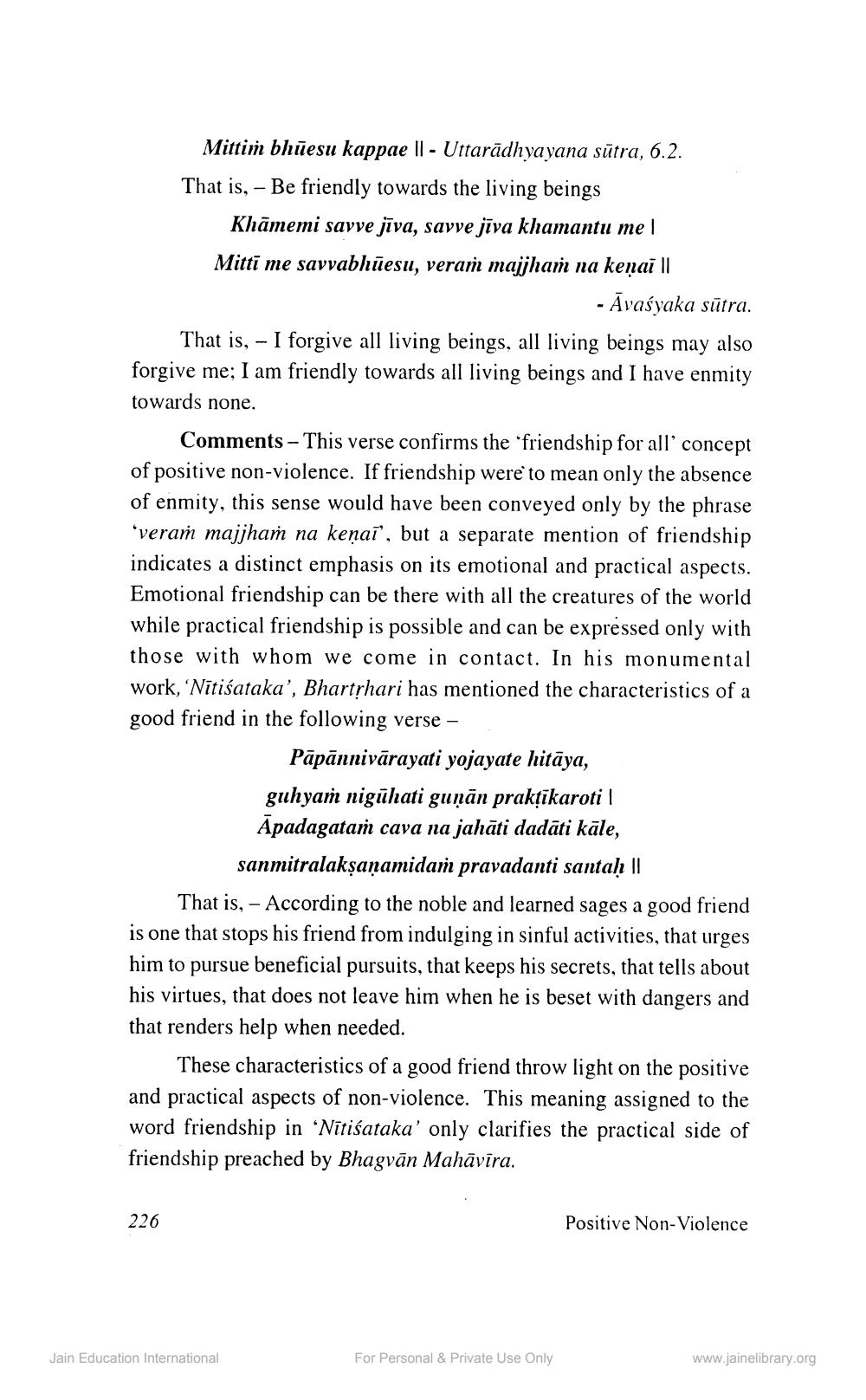________________
Mittim bhūesu kappae || - Uttarādhyayana sutra, 6.2. That is, - Be friendly towards the living beings
Khamemi savve jiva, savve jiva khamantu me | Mitti me savvabhūesu, veram majjham na keņai || - Avaśyaka sūtra.
-
That is, I forgive all living beings, all living beings may also forgive me; I am friendly towards all living beings and I have enmity towards none.
Comments - This verse confirms the 'friendship for all' concept of positive non-violence. If friendship were to mean only the absence of enmity, this sense would have been conveyed only by the phrase 'veram majjham na keṇai', but a separate mention of friendship indicates a distinct emphasis on its emotional and practical aspects. Emotional friendship can be there with all the creatures of the world while practical friendship is possible and can be expressed only with those with whom we come in contact. In his monumental work, 'Nitiśataka', Bhartṛhari has mentioned the characteristics of a good friend in the following verse -
Papannivārayati yojayate hitaya,
guhyam niguhati guṇān praktikaroti | Apadagataṁ cava na jahāti dadāti kāle,
sanmitralakṣaṇamidaṁ pravadanti santaḥ ||
-
That is, According to the noble and learned sages a good friend is one that stops his friend from indulging in sinful activities, that urges him to pursue beneficial pursuits, that keeps his secrets, that tells about his virtues, that does not leave him when he is beset with dangers and that renders help when needed.
These characteristics of a good friend throw light on the positive and practical aspects of non-violence. This meaning assigned to the word friendship in 'Nitiśataka' only clarifies the practical side of friendship preached by Bhagvan Mahāvīra.
226
Jain Education International
For Personal & Private Use Only
Positive Non-Violence
www.jainelibrary.org




